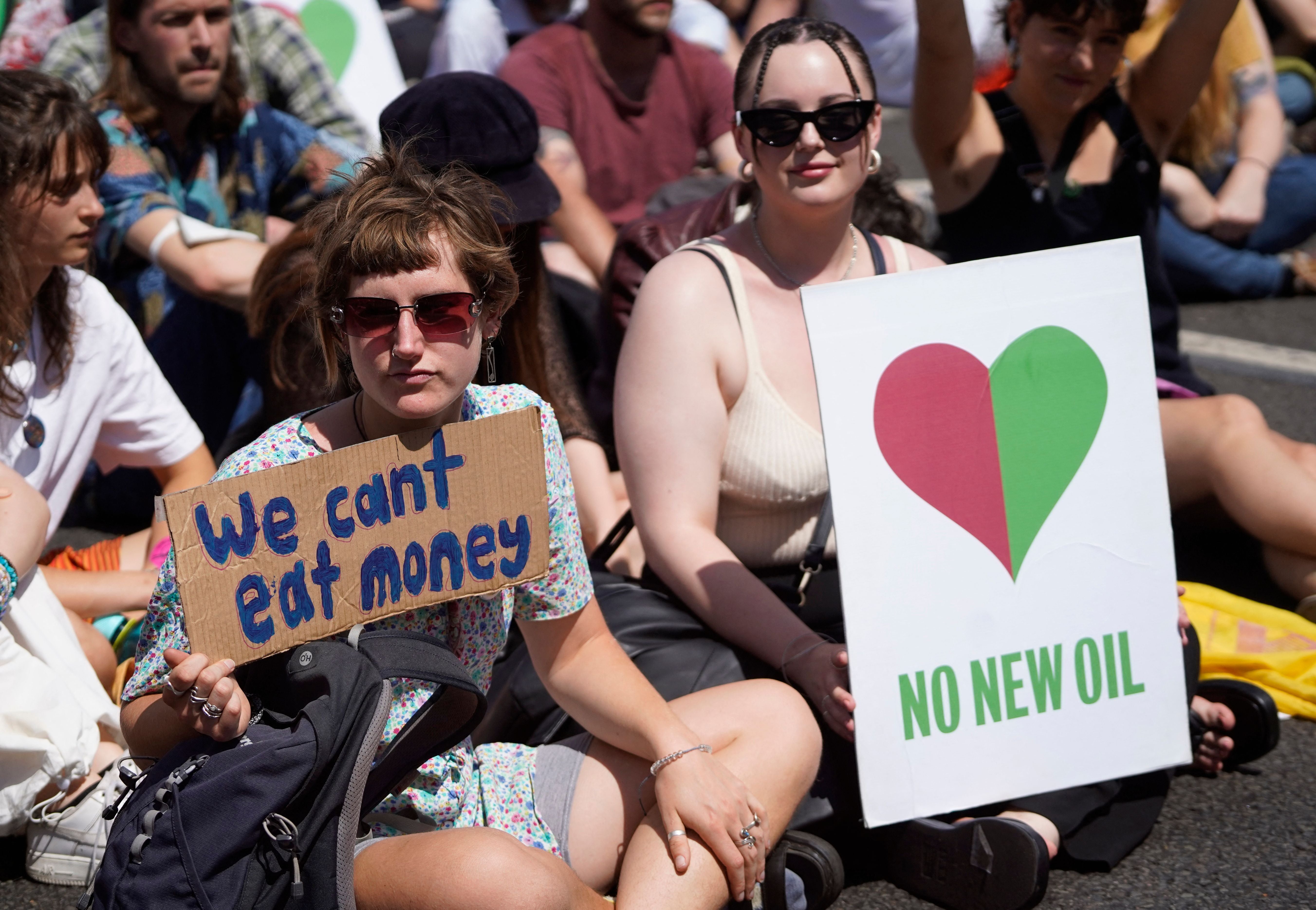The optics, as the presentational experts say, are terrible.
Just as average domestic energy bills are spiralling up towards the £4,000-a-year mark, with higher mortgages, taxes, fuel and food bills on top, a couple of fossil fuel giants report record profits. And by “record” is meant a fivefold increase for Centrica, the owner of British Gas, over the first half of the year; and in the case of Royal Dutch Shell, albeit on a global basis, cash is being spun off at a rate of £9.4bn over the second quarter of the year alone – more than double last year’s figures.
There are caveats. Like in so many industries, business was not so easy during the pandemic, and the money is being made in the “upstream”, or wholesale, end – getting the oil and gas out of the ground and selling it on.
The profits at the downstream end, where they meet customers and statutory price caps, have been thin or non-existent for many energy suppliers, and some have gone bust in a spectacular fashion.
Even so, it suggests that the windfall tax on the energy giants may well need some further adjustment, if only to help households and businesses facing unsustainable costs.
That, though, is only the beginning of finding a way through this part of the cost of living crisis. The primary driver of the steep rise in the cost of hydrocarbons has been the war in Ukraine. If, for the sake of argument, the war ended tomorrow, the various sanctions on Russia were lifted, and Vladimir Putin resisted the temptation to use energy as a weapon, then gas and electricity bills would plummet. Indeed, with a slowing world economy, they might fall to below pre-pandemic levels.
However, the war is not going to be over soon – not even by the end of the year, which is Volodymyr Zelensky’s stated aim. If it drags on, or settles into a state of semi-permanent stalemate, with sanctions and export restrictions on Russia still in place, then the energy crisis will also drag on. Of course, prices cannot continue to rise at something like 50 per cent a year, but they could well plateau at their current elevated level for the foreseeable future.
The energy “crisis” will also become a fixed fact of life, assuming that the West has the willpower to continue to support Ukraine with weaponry and to maintain sanctions on Russia. For many in Europe, especially, it will mean a cold and expensive winter this year, and for years to come. So a longer-term approach is needed.
In the short term, there may be no alternative to windfall taxation and widespread subsidies, paid for through general taxation and government borrowing. In the medium to long term, more radical and, in fact, very obvious changes are needed, and they will need a strong push and some funding from the government. Britain’s ageing housing stock, for example, is poorly insulated by international standards, and ill-suited to conversion from gas- and oil-fired systems to heat pumps and electrically driven heating.
The state will also have to find a framework to help pay for the installation of new heating systems, and recover the upfront subsidy to householders via a share in the saved costs. Even so, such a revolution is bound to encounter sharp consumer resistance.
To keep up to speed with all the latest opinions and comment, sign up to our free weekly Voices Dispatches newsletter by clicking here
In the longer term, there is no alternative to expanding renewable low-cost sources of energy, including onshore wind farms and more solar panels and pumps, on roofs and in fields where farming is no longer economic (thanks to Brexit and climate change). Nuclear power, for all its manifest risks and drawbacks, has to have a part in this process of adjustment, to secure energy when the sun doesn’t shine and the wind doesn’t blow – and it is preferable, on balance, to fossil fuels.
The opposition parties, and indeed the energy companies, seem to understand these imperatives and the need to make early progress on reaching the net zero target. The cost of living crisis and the climate crisis are intimately connected, and sometimes, notably during the present Conservative leadership election, the change to green energy is regarded as being too expensive and too challenging. This is an inversion of the truth.
It is precisely because fossil fuels are both expensive and a danger to life on Earth that they have to be wound down in favour of plentiful, domestically produced, cheap green energy. There is loose talk about abandoning the modest green charge on energy bills, which helps to insulate the homes of poorer families, and focusing on fracking and expansion in the North Sea, neither of which will make a difference for many years.
It is dispiriting, but not altogether surprising, that both of Boris Johnson’s successors seem to be actually worse, and even less serious, than he was about climate change and getting renewables done.
Under Liz Truss, especially, the future looks bleak.







Join our commenting forum
Join thought-provoking conversations, follow other Independent readers and see their replies
Comments